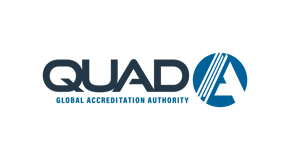We have all heard the phrase time and again - handwashing saves lives. The problem is, like other practices, we tend to cut corners when time is short. Periodic reminders can help us stay mindful of the importance of handwashing and remain vigilant in practicing it, even when time is of the essence. The advantages of taking such precautions are worth the effort.
We experienced firsthand the effects of handwashing when the COVID-19 epidemic captured our attention in 2020. The uncertainty about the disease kept everyone cautious so much so, that we washed our hands a lot more. We were unsure of how long the virus would survive or where it would reside. We wore masks, refused to shake hands, washed after touching public surfaces, and even wiped grocery bags with disinfectant wipes upon returning home. Despite the lack of information, we took proactive steps to reduce the risk of contracting and spreading the virus. We wanted to ensure our safety and that of those around us and avoid COVID-19 at all costs.
For many people, due to the number of precautions taken, it was a time free from respiratory and other contagious illnesses, which means the research and collected data are clear. Handwashing reduces the spread of illnesses and infections. Thus, this is a prime example of how the simple act of washing our hands can have a positive impact on our health and well-being.
The Centers for Disease Control (CDC) posted a document about handwashing titled "Hand Hygiene in Healthcare Settings," which stated, “Practicing hand hygiene is a simple yet effective way to prevent infections in healthcare settings. Hand hygiene, which means cleaning your hands by washing with soap and water or using an alcohol-based hand sanitizer, is one of the best ways to avoid getting sick and prevent spreading germs to others.”
The CDC further suggested using alcohol-based hand sanitizers as the primary method of hand hygiene in most healthcare situations. They reiterated this by stating, “Alcohol-based hand sanitizers effectively reduce the number of germs on the hands of healthcare workers after interacting with patients. Hand sanitizers are also a quick and easy way for healthcare workers to clean their hands, improving hand hygiene compliance in healthcare settings.”
The CDC has conducted countless studies to prove that physical interventions can reduce the spread of viruses. These measures include wearing face masks, washing hands frequently, avoiding large gatherings, and practicing social distancing. Their research indicated that physical measures coupled with hand hygiene can be even more effective at reducing the spread of infectious diseases.
The Healthcare Infection Control Practices Advisory Committee (HICPAC) advised the CDC, and in a report entitled, "Core Infection Prevention and Control Practices for Safe Care Delivery in All Healthcare Settings," recommended that healthcare personnel use an alcohol-based hand rub or wash with soap and water in the following clinical situations:
- Immediately before touching a patient
- Before performing an aseptic task (e.g., placing an indwelling device) or handling invasive medical devices
- Before moving from working on a soiled body site to a clean body site on the same patient
- After touching a patient or the patient’s immediate environment
- After contact with blood, body fluids, or contaminated surfaces
- Immediately after glove removal
The HIPAC report also suggested that healthcare facilities do the following:
- Require healthcare personnel to perform hand hygiene in accordance with Centers for Disease Control and Prevention (CDC) recommendations
- Ensure that healthcare personnel perform hand hygiene with soap and water when hands are visibly soiled
- Ensure that supplies necessary for hand hygiene are readily accessible in all areas where patient care is delivered
Additionally, HIPAC made a statement on the effectiveness of handwashing and hand sanitizers, and stated, “Outbreak investigations have indicated an association between infections and understaffing or overcrowding; the association was consistently linked with poor adherence to hand hygiene.” Ultimately, inadequate hand hygiene is not only a risk factor in overcrowded and understaffed facilities, but it can also lead to the spread of infection in any setting. It is therefore essential that proper handwashing and sanitization practices are followed in all places and at all times.
QUAD A takes hand hygiene very seriously. Standards (7A and/or 7B) in each program address infection control and hand hygiene. Compliance is mandatory. As such, QUAD A is committed to promoting a safe and healthy environment for all members of their programs.
Medicare provides interpretative guidelines for Rural Health Clinics. RHC 14-C-5 states in part, “At a minimum, staff must maintain proper hand hygiene whenever they are directly in contact with a patient." The Centers for Medicare & Medicaid Services also provide Interpretative Guidelines for Outpatient Physical Therapy and Speech-Language Pathology services. Guideline 15-L-1 requires the establishment of an infection-control committee to “ensure that the organization has up-to-date infection control policies and procedures for investigating, controlling and preventing infections in the organization; as well as monitor staff performance to ensure that the policies and procedures are being executed.” The infection-control committee must also be responsible for evaluating the effectiveness of the policies and procedures in preventing infections and making necessary changes or adjustments as needed.
The bottom line is simple: washing your hands saves lives. So make sure everyone you employ or work with knows how and where to wash their hands. Lead by example and set a healthy hand-washing habit at your workplace.
At QUAD A, our goal is to be your go-to provider for accreditation – always striving to be an effective, efficient, and easy-to-work-with partner that values education, reliability, and communication.


